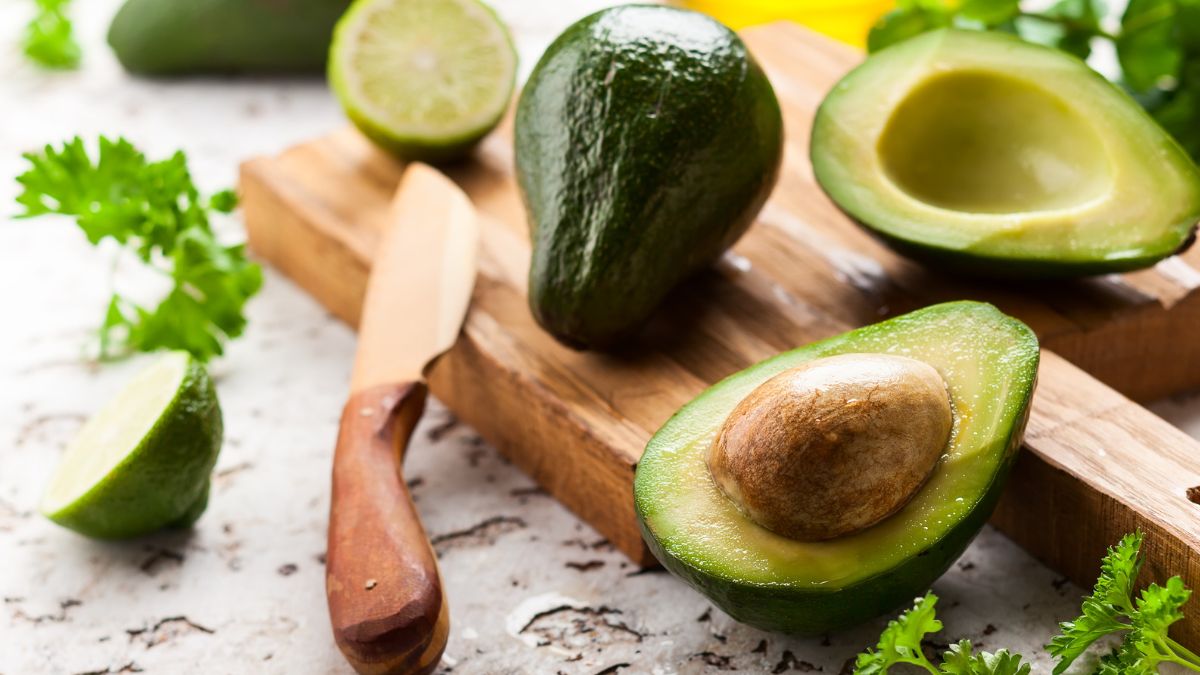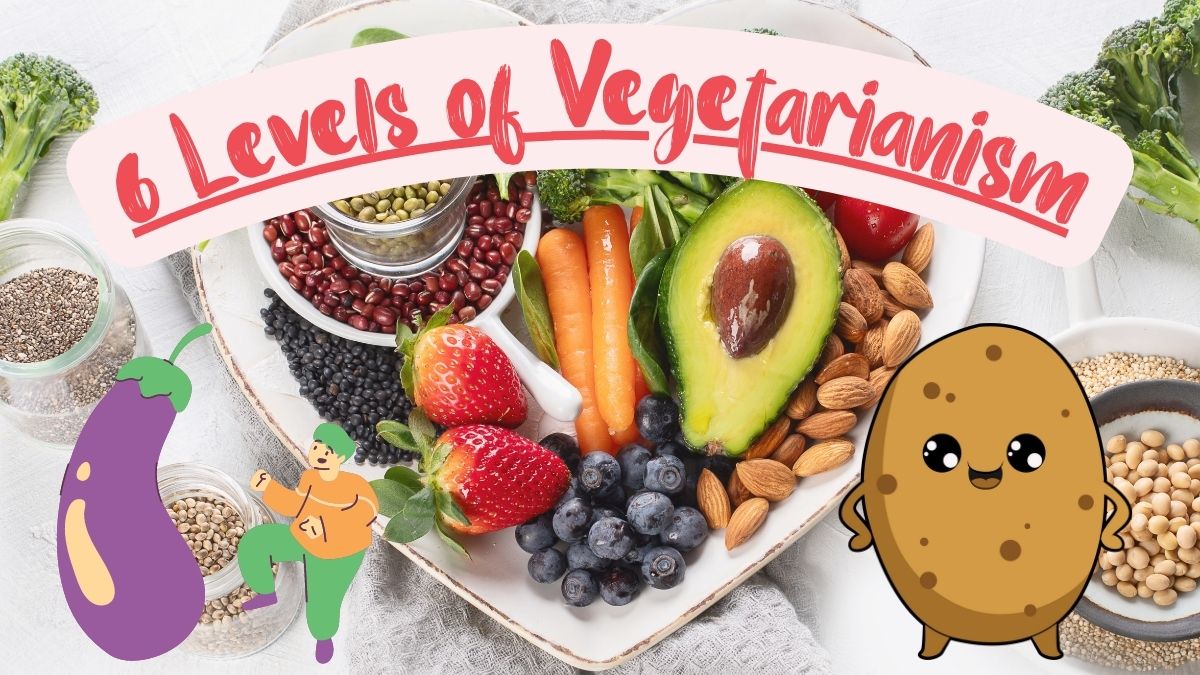A Journey Into The Avocado World…
Avocados, with their creamy texture and vibrant green color, have captivated palates around the world, finding a place in a plethora of dishes, from guacamole to salads, sushi rolls, and even desserts. Tracing back to the days of the early Spanish explorers stepping into the lush jungles of the Caribbean and Central America, the tale of this extraordinary fruit has spanned continents and centuries.
The local people’s love for this creamy delight was quickly adopted by the Spaniards, leading to the avocado’s global ascendance as a beloved fruit.
Fast-forward to the present day, big avocados have emerged from their roots in the Americas, reaching the far corners of the world, such as Indonesia in 1750, Florida in 1833, Israel in 1908, and Australia in the late 1800s.
The fruit made a triumphant entrance into California in 1856, becoming a dominant player in the local agricultural landscape. In this comprehensive guide, we aim to introduce you to the fascinating variety of avocados available and their corresponding seasons, providing you with insights on how to enjoy their distinctive tastes and textures fully.
Health Benefits of Avocados

Avocados are not only delicious but also nutritious fruits that can offer various health benefits. They are rich in healthy fats, fiber, and antioxidants that can support your heart health, gut health, vision, and immune system. Avocados also contain many vitamins and minerals that are essential for your body’s functions, such as vitamin C, vitamin E, vitamin K, folate, magnesium, and potassium.
Eating avocados regularly may help lower your cholesterol levels, prevent osteoporosis, protect against cancer, and promote a healthy weight. Avocados are also a smart choice during pregnancy and breastfeeding, as they provide important nutrients for the mother and the baby.
Avocado nutrition facts
Avocado nutrition facts are information about the calories, macronutrients, micronutrients, and health benefits of avocados. Avocados are a fruit that has a creamy texture and a mild flavor. They are rich in healthy fats, fiber, antioxidants, vitamins, and minerals. Here are some avocado nutrition facts based on half of an avocado (100 grams):
| Calories: | 160 |
| Fat: | 14.7 grams (mostly monounsaturated) |
| Carbohydrates: | 8.5 grams (mostly fiber) |
| Protein: | 2 grams |
| Magnesium: | 29 milligrams |
| Potassium: | 485 milligrams |
| Vitamin C: | 10 milligrams |
| Vitamin E: | 2.1 milligrams |
| Vitamin K: | 21 micrograms |
| Folate: | 81 micrograms |
Some of the health benefits of avocados include:
- Lowering cholesterol and blood pressure levels
- Improving blood sugar control and insulin sensitivity
- Enhancing eye health and vision by providing carotenoids such as lutein and zeaxanthin
- Supporting gut health and digestion by providing soluble and insoluble fiber
- Modulating the gut microbiome by increasing beneficial bacteria and reducing inflammation
- Promoting satiety and weight management by providing healthy fats and fiber
Large Avocado: What You Need to Know
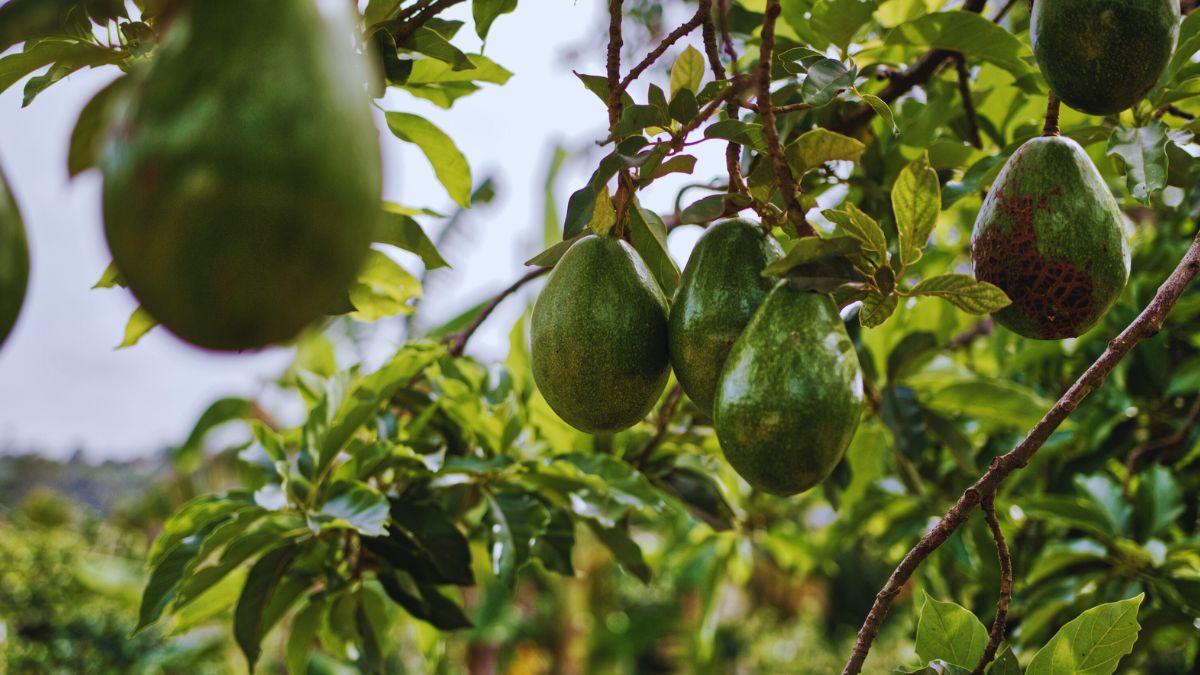
Avocados come in different sizes, ranging from small to large. The size of an avocado is usually determined by the number of fruits that fit in a 25-pound carton. For example, a size 48 avocado means that 48 avocados weigh 25 pounds. The larger the size number, the smaller the fruit. The current record for the largest avocado is a whopping 89.6 ounces, which is 15 times the size of an average avocado.
Some of the largest avocado varieties include Reed, Choquette, Tonnage, and Daily 11. These avocados can grow to be larger than a softball and weigh over a pound. The size of an avocado does not affect its quality, flavor, or nutrition. However, the size may influence how you use it in your recipes. Larger avocados may be more suitable for slicing or wedging, while smaller avocados may be easier to mash or puree.
Avocado sizes
Avocados come in different sizes and shapes, depending on the variety and growing conditions. The size of an avocado is usually measured by the number of fruits that fit in a 25-pound carton. For example, a size 48 avocado means that 48 avocados weigh 25 pounds.
The larger the size number, the smaller the fruit. Avocado sizes range from 20 to 96, with the most common sizes being 48 and 60 for food service. The size of an avocado does not affect its quality, flavor, or nutrition. However, the size may influence how you use it in your recipes. Larger avocados may be more suitable for slicing or wedging, while smaller avocados may be easier to mash or puree.
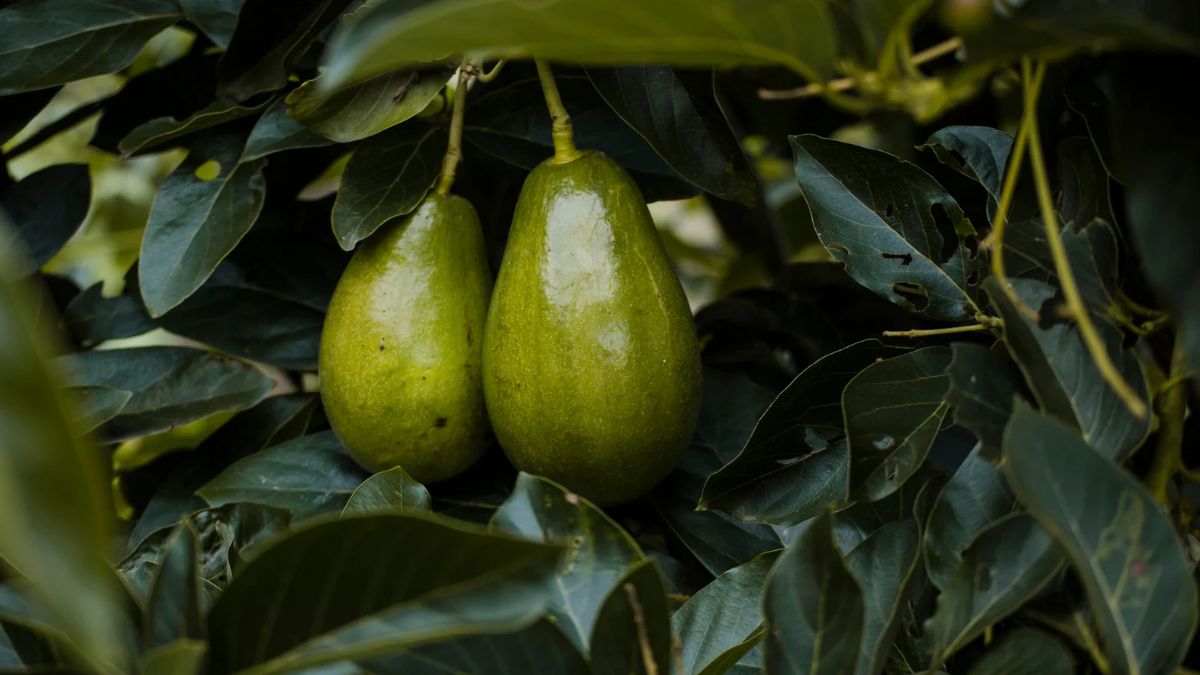
Spotlight on Big Avocado Varieties
- Hass: Often hailed as the poster child of avocados, the Hass variety has carved out a special place in the avocado world, making up the majority of the produce from the prolific orchards of San Diego, Los Angeles, and Santa Barbara. Its high oil content, above 20%, imparts a rich, nutty flavor and a texture akin to almond butter. This is the go-to variety for your Super Bowl guacamole, with its tough skin serving as an ideal scooping cup. It enjoys the unique status of being available year-round.
- Reed, Fuerte, Zutano, and Bacon: These are rarities grown on small Californian farms, each with its unique appeal.
- Choquette, Hall, and Lulu: These large, smooth-skinned varieties are Florida’s pride and are popular among Caribbean immigrant communities. Their juicy, sweet flesh contrasts the oil-rich Californian varieties, and they’re even marketed as “SlimCados” due to their lower oil content.
Tasting the Diversity of Avocados
To appreciate the exquisite range of avocados, we engaged in a flavorful expedition of avocado tasting. Each variety brought to the table its unique texture, flavor, and culinary merit, establishing that no single avocado variety can be deemed superior to the others.
- Shepard: It is a distinctive commercial avocado variety hailing from Australia, boasting a captivating combination of characteristics. Its luscious flesh, characterized by its stickiness and opulent richness, embraces a strikingly pointed, acorn-shaped pit at its core.
While it shares some textural similarities with the renowned Hass variety, Shepard sets itself apart with a slightly thicker consistency that exudes a captivatingly adhesive quality akin to the texture of glue. Renowned for its exceptional growth, Shepard thrives splendidly during the bountiful months spanning from August to October, delighting avocado enthusiasts with its unrivaled flavor and remarkable versatility in culinary applications. - Choquette: A beloved variety in the state of Florida, it captivates with its impressive size and composition. Weighing a remarkable 2 pounds, this avocado predominantly comprises water, contributing to its substantial weight. Its succulent and velvety flesh is a true delight to the senses, boasting a delicate and gentle flavor profile. The Choquette avocados grace the markets from October to December, offering a limited-time opportunity to savor their exquisite juiciness and indulge in their mild and gratifying taste.
- Tonnage: Tonnage, a timeless pear-shaped avocado, stands out with its extraordinary sweetness, defying expectations with its low-fat content ranging from 8% to 10%. Its velvety and buttery flesh envelops the palate with a delightful fusion of flavors, where the subtle essence of chestnut lingers in the background, adding a savory note to the overall experience. This exceptional avocado variety graces us with its presence during the bountiful month of September, providing a splendid opportunity to indulge in its delectable taste and revel in its unique culinary attributes.
- Daily 11: It’s a substantial cousin of the popular Hass variety and impresses with its weighty presence, often exceeding 5 pounds. Its robust nature is safeguarded by a thick, armor-like skin shielding the delectable treasure. Once you crack open its protective exterior, you are rewarded with an abundance of dense, flavorful, and lusciously oily flesh. The Daily 11 thrives during the generous timeframe from August through October, offering a prolonged season to relish its unique attributes and relish in the culinary possibilities it presents.
- Macarthur: It is an avocado variety exuding a voluptuous shape, enchanting with its captivating nutty flavor that delights the taste buds. When allowed to ripen fully, its meat becomes irresistibly smooth and buttery, offering a luxurious and indulgent texture. Macarthur graces us with its presence during the months spanning from August through November, presenting a delightful season to savor its exquisite taste and revel in its culinary versatility.
- Hall: A close relative of the esteemed Choquette avocado, it possesses a distinct character with its pronounced nutty profile. Compared to its counterpart, Hall showcases a drier and thicker texture while retaining its inherent juiciness and fruity essence. This delightful variety makes its appearance in the markets during the months of October through November, offering a limited window to indulge in its unique attributes and experience its exquisite flavors.
- Mexicola Grande: This is though petite in size, captivates with its striking beauty, boasting a thin and lustrous black skin that exudes an alluring charm. Its sweetness and slightly fibrous texture enhance its overall appeal, while its juicy flesh adds a delightful juiciness to every bite. This remarkable variety entices avocado enthusiasts during the months spanning from August to October, offering a cherished opportunity to savor its unique qualities and relish in its irresistible flavor.
- Anaheim: This is a generously sized avocado resembling a softball and can impressively weigh up to 2 pounds. Its velvety flesh offers a creamy, soft texture that is nothing short of indulgent. The avocado’s flavor profile is characterized by a gentle and mild nuttiness, further adding to its allure. The Anaheim variety blesses us with its presence during the period extending from June through September, providing a delightful season to revel in its lusciousness and savor its exquisite taste.
In addition to these, other U.S.-grown varieties such as Bacon, Fuerte, Zutano, Pinkerton, Gwen, Lamb Hass, and Reed add to the diversity of avocados.
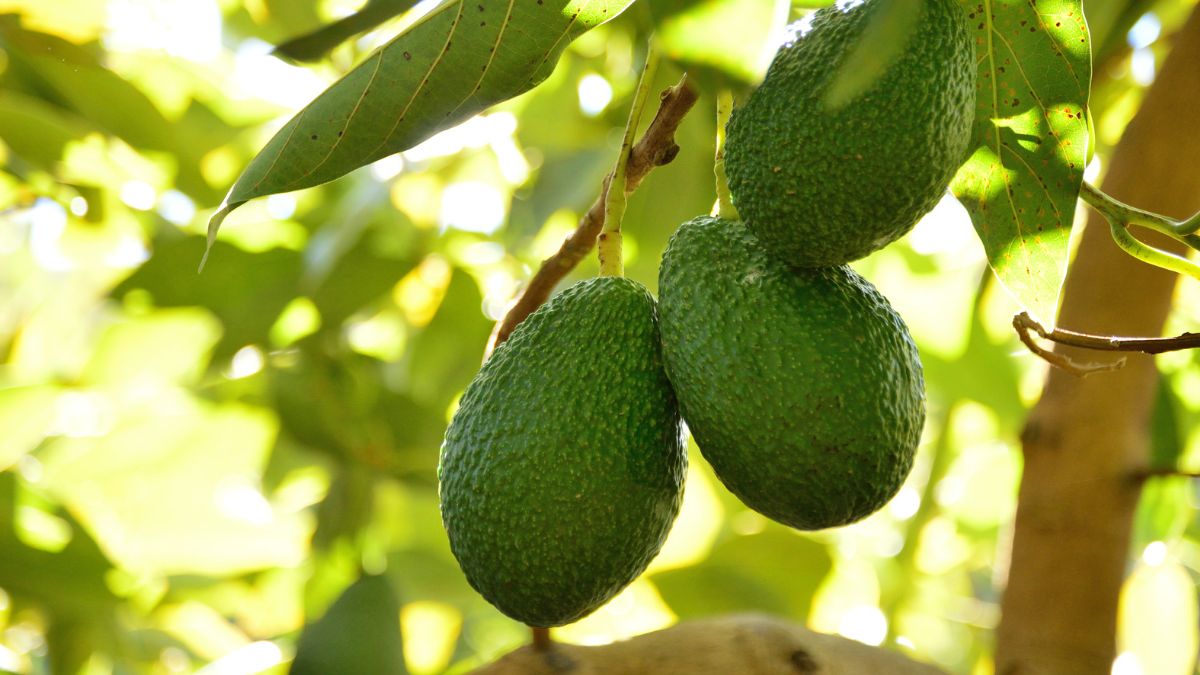
Conclusion
Avocados, despite their shared name, are far from a monolithic entity. They come in a multitude of shapes, sizes, tastes, and textures, adding a fascinating layer of complexity to their seemingly simple exterior. Armed with knowledge about their variety and seasonality, you can now dive deeper into your avocado journey, exploring and appreciating the richness of this amazing fruit.
FAQ
How can I choose and store avocados?
To choose a ripe avocado, look for one that yields to gentle pressure and has dark green or blackish skin. You can also check the stem end of the avocado. If it comes off easily and reveals a green spot underneath, it means the avocado is ripe. If it reveals a brown spot, it means the avocado is overripe. To store avocados, keep them at room temperature until they ripen. Then you can refrigerate them for up to 5 days. You can also freeze mashed or pureed avocados for later use.
How can I use avocados in my recipes?
Avocados are very versatile and can be used in a variety of dishes, such as guacamole, salads, sandwiches, wraps, sushi rolls, smoothies, soups, dips, sauces, and even desserts. You can also enjoy avocados on their own with some salt, lemon juice, or your favorite seasoning.
What are some tips for cutting and peeling avocados?
To cut an avocado, slice it lengthwise around the pit and twist the two halves to separate them. Then use a spoon or a knife to remove the pit. You can either scoop out the flesh with a spoon or peel off the skin with your fingers. To prevent the avocado from browning, you can sprinkle some lemon juice or vinegar on the cut surface or cover it with plastic wrap.
Are avocados good for the environment?
Avocados are generally considered a sustainable crop that can benefit the environment. They can help conserve water, prevent soil erosion, sequester carbon dioxide, and provide habitat for wildlife. However, some avocado production practices may have negative impacts on the environment, such as deforestation, pesticide use, and water pollution. Therefore, it is important to choose avocados that are grown organically or certified by environmental organizations.
Is an avocado a fruit?
Yes, an avocado is a fruit. More specifically, it is a large berry with a single seed that grows on a tree. Although it is not as sweet as many other fruits, it meets the botanical definition of a fruit, which is “the sweet and fleshy product of a tree or other plant that contains seed and can be eaten as food” Avocados are native to Mexico and Central America and belong to the laurel family (Lauraceae) They are one of the few fruits that are high in healthy fats and low in sugar.
